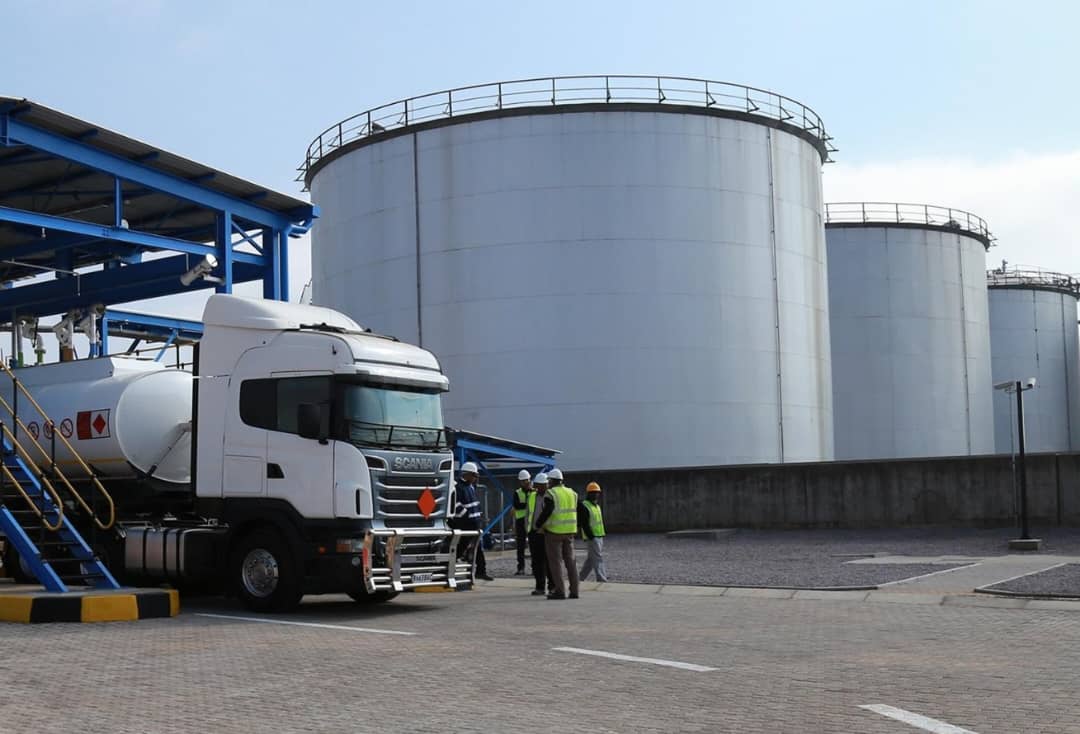Business
Expert Advises Operators to Convert Petrol Depots into Crude Oil Storage Facilities

An expert recommends that operators transform petrol depots into storage facilities for crude oil to optimize resources and enhance operational efficiency
Omonigho Otanocha, an energy specialist, has encouraged the government and petroleum product importers to transform their depots into crude storage facilities in light of Nigerian National Petroleum Company Limited’s (NNPCL) cessation of imports due to Dangote Refinery releasing its products.
On the Sunrise Daily show’s Business Morning segment, Otanocha of FUPRE Energy Solutions Limited, who is also the Chief Executive Officer, revealed this information.
According to Otedola, the introduction of petrol by the $20bn Dangote Refinery means that Nigeria will no longer have to rely on foreign countries for its fuel requirements.
According to Otedola, with the complete production of aviation fuel, diesel and petrol at a capacity of 650,000 barrels per day facility by billionaire industrialist Aliko Dangote; it is safe to say that he has eliminated any existing local monopolies.
Otedola advised the owners of depots to be alert and recommended they sell them for scrap while prices are still favorable as it is essential to adapt in a changing world, or risk being left behind.
In response to Otedola’s remarks, Otanocha suggested that instead of scrapping the storage facilities altogether, they could be altered to allow for crude oil storage and assist with local capacity development in the region.
READ ALSO: Commuters Stranded in Abuja as Fare Hikes Follow NNPCL’s Fuel Price Increase to N855 Per Litre
I firmly endorse increasing the number of campaigns and production to meet our quota, thereby enabling us to cater for local refineries after meeting OPEC’s and other multinational demands.
Challenge presented by NNPCL debt.
The Dangote Refinery’s introduction of petrol coincided with the NNPCL acknowledging its considerable debt to gasoline providers, which endangers the longevity of fuel accessibility.
Since the start of 2024, petrol scarcity in Nigeria has remained a persistent issue due to reports indicating that NNPCL’s $6 billion debt owed to petrol suppliers has exacerbated the problem.
The NNPCL cited various reasons, including logistical difficulties and flooding, for the scarcity of the vital product at different times.
On Sunday, NNPCL representative Olufemi Soneye stated that the company is experiencing significant financial strain which jeopardizes its ability to provide sustainable fuel supply.
Despite being Africa’s most populous nation, Nigeria is currently confronted with energy challenges as none of its state-owned refineries are operational. Consequently, the country heavily relies on imported refined petroleum products which are majorly imported by NNPC – a government owned corporation.
Fuel queues have become a common occurrence in the country due to petrol prices that tripled since May 2023 when subsidies were removed. This significant increase has raised the cost of fuel from approximately ₦200/litre up to around ₦800/litre, greatly exacerbating hardships for citizens who rely on gasoline to power their vehicles and generators amid perpetual electricity outages spanning decades.
The government merged forex markets, causing the naira to plummet from $1/₦700 to over $1/₦1600 in informal trading. Inflation ensued as Nigerians struggled with soaring costs of food and essential goods.
